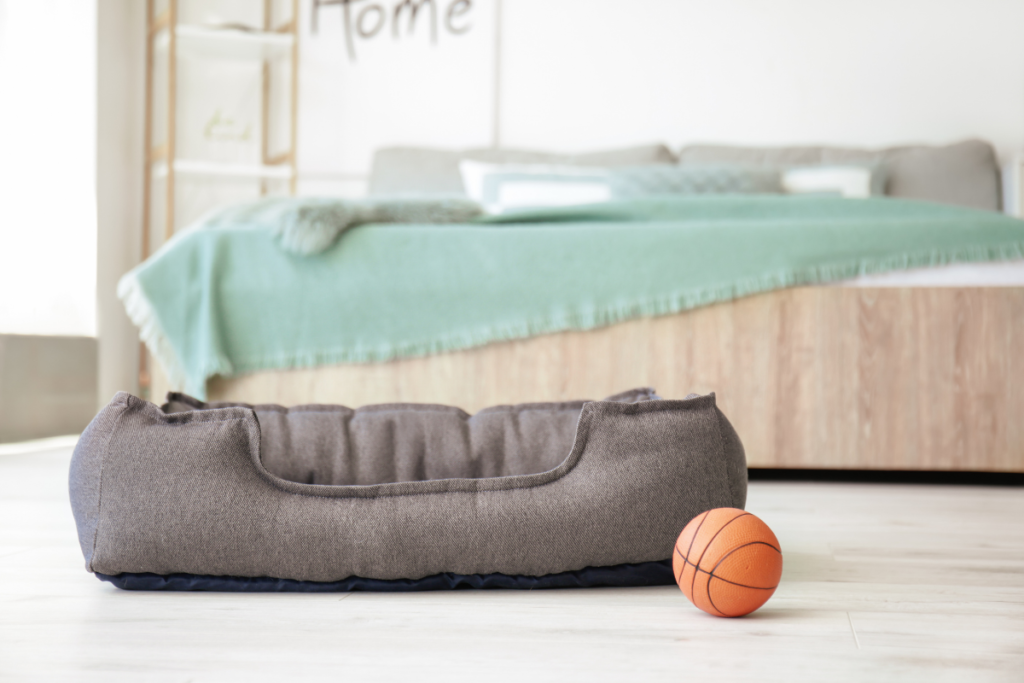
Have you ever driven yourself nuts? It happened to me just last week.
I was in T.J. Maxx for the first time in 16 months.
Though I didn’t find the towels I was looking for, I did stumble upon a section of dog beds, which was fortunate as my dog Gracie was turning 12 later that week, and, though her gift list surely included bones, treats, and balls, I’d been wanting to replace one of her dog beds.
The selection of beds covered three long shelves. After touching and considering the many options, I narrowed my choice down to two beds.
And still I couldn’t decide.
Which bed would Gracie find most comfortable? Which bed would my husband find least distasteful? Which color would look best in our family room?
I finally forced myself to pick one of the beds and started walking to the checkout line. Halfway there I stopped. What if I got the wrong bed? I knew I could return it, but that would mean another trip. I even reminded myself that if the bed didn’t work I could donate it to a shelter.
And still.
I couldn’t decide.
I turned around, returned the perfectly fine dog bed to the shelf and left the store exhausted and frustrated.
On my way home while trying to summon a bit of self-compassion, I recalled some relevant research about decision-making.
Behavioral psychologists discovered two approaches people often take when faced with multiple options. ‘Maximizers’ strive to make the “best” decision and will scour and consider all the choices before making a decision whereas ‘satisficers’ are more comfortable settling for “good enough.”
As doctor and associate professor, Shahram Heshmat writes:
“Satisficers are pleased to settle for a good-enough option, not necessarily the very best outcome in all respects. A satisficer is less likely to experience regret, even if a better option presents itself after making a decision. Compared to satisficers, maximizers are more likely to experience lower levels of happiness, regret, and self-esteem. They also tend to be perfectionists.”
Sound familiar?
It does to me. And even though I’m aware of this research I still found myself trying to maximize my choice of a $22.00 dog bed.
Now while none of us are purely maximizers or satisficers, I find that like me, many of my high-achieving clients have a bias towards maximizing – which often leads to less productivity and more dissatisfaction.
If you can relate, consider:
- When possible, give yourself fewer, not more, choices to consider.
- Ask yourself which choice will meet your needs now – not which choice is “the best.”
- Tune into your gut feeling rather than an objective notion of perfection.
Doing so will help you receive the benefits of satisficing which include:
- Getting more things accomplished
- Being less vulnerable to social comparison
- Feeling less regret with decisions.
While my maximizing approach to choosing Gracie’s dog bed frustrated me, it did get Gracie the new bone, ball, and extra cookie she wanted for her birthday. Which ultimately satisfied both of us.
You matter,
